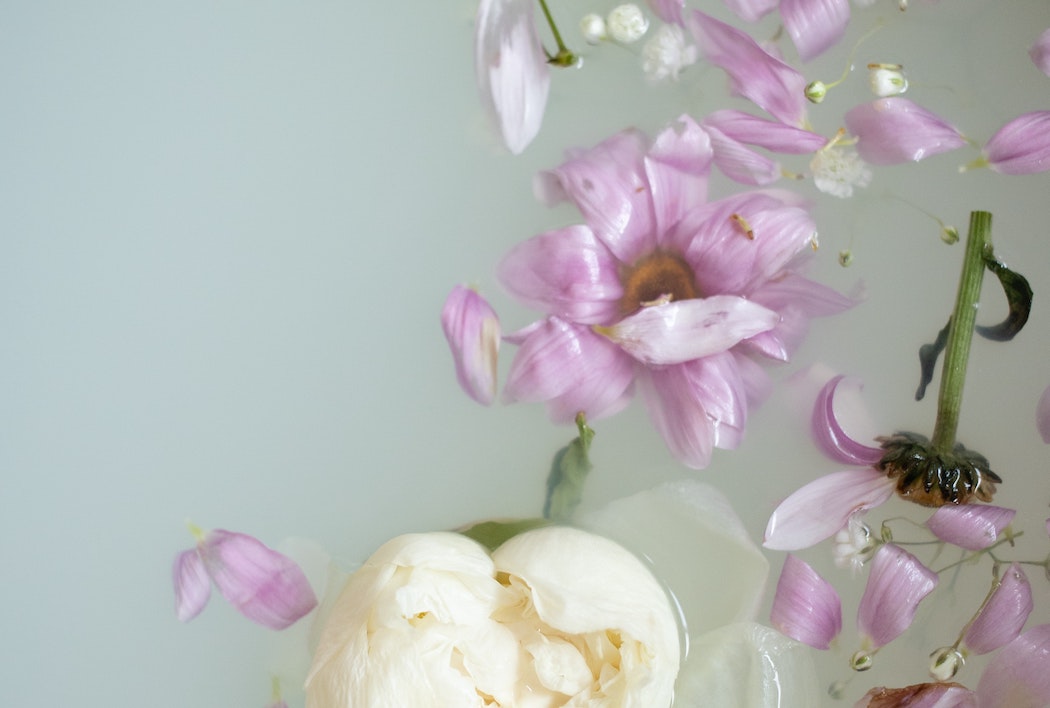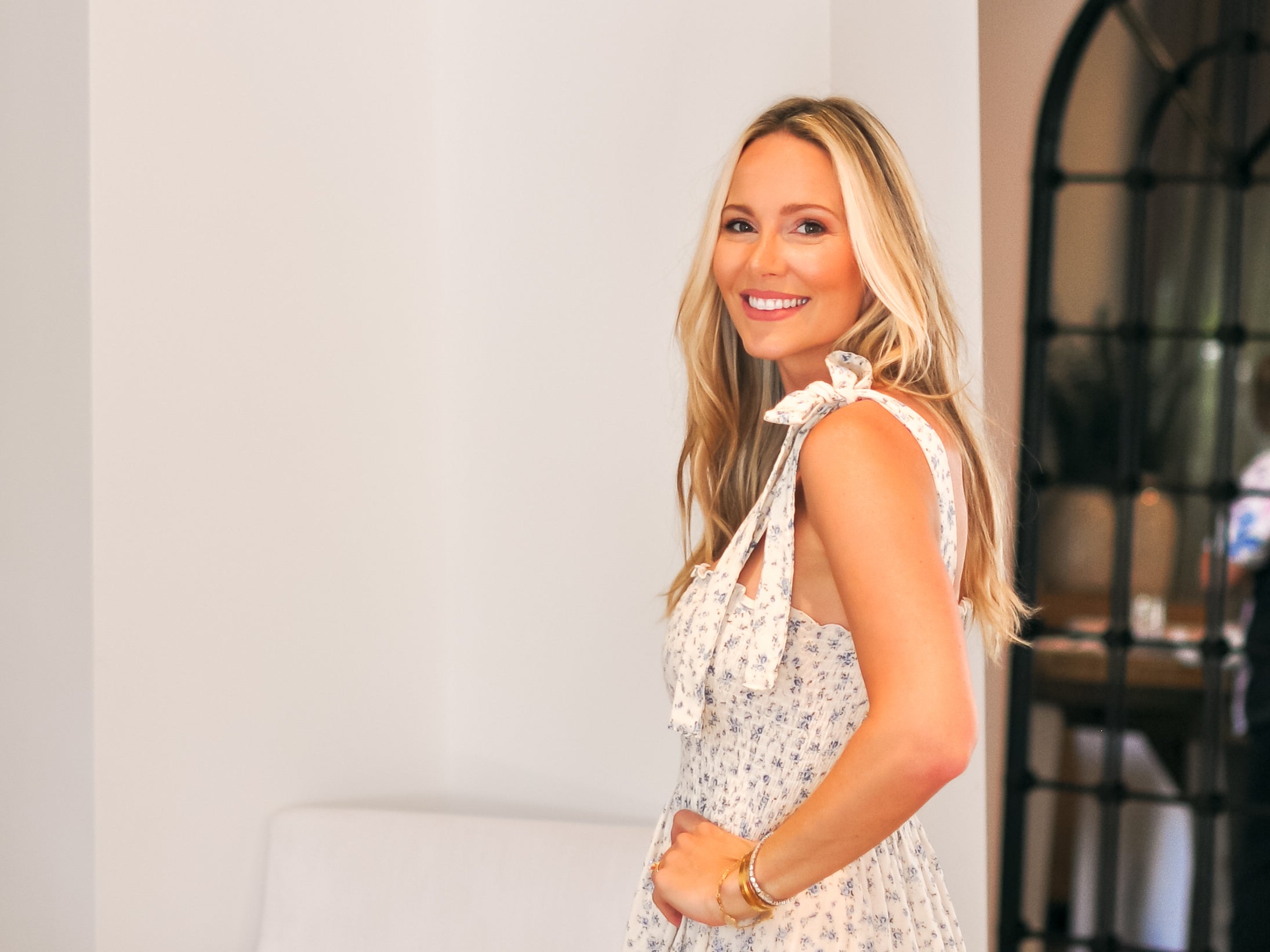I’m sure I’m not alone when I say that I’ve spent more time facing myself over the last year than ever before.
Living alone in my one-bedroom apartment, I became my own bad roommate: frustratingly creating pile after pile of dishes, leaving hair all over the bathroom floor. The behavior started to leach beyond domestic duties, too—I kept disappointing myself at my job, unable to handle the workload; and I struggled to rationalize what I’d judged to be unwarranted feelings of heartbreak.
I felt like I shouldn’t be so overwhelmed and sad, and descended into a kind of psychological orthorexia––a belief that if I only had pure, affirming thoughts and perfected my sense of deservingness, I would attract positive experiences and people who wouldn’t hurt me. The self-love I was trying to practise was based on my ability to get good things to happen. As the year wore on, this mindset became unbearable.
So much of wellness culture is still focused on the individual, telling you that when things go wrong or you’re hurting, you are both the cause and the sole solution. Buying into this ideology, I believed that my pain and bad luck meant that I wasn’t doing enough inner work to stop my negative reactions to my circumstances.
The more I felt scared or hopeless or anxious, the more I beat myself up for not achieving this inner utopia of self-love that would finally enable me to experience all that I desired. I couldn’t acknowledge that some things in my life weren’t working, because I was so hell-bent on fixing myself. I was holding myself hostage in my own mind.
I had to learn how to actually live with myself and enjoy my current circumstances. And self-respect—not self-love—was the place I realized I needed to start.
Joan Didion’s iconic essay, “Self-Respect: Its Source, Its Power,” was published in Vogue in 1961. I’d expected it to be a little bit of tough love about how if you would like to respect yourself, you need to do things that warrant respect—like achieving goals, working hard, and reacting rationally. About midway through the essay, though, I realized that this wasn’t what Didion was suggesting at all; I had projected my modern conception of earned self-respect on her treatise, which was really about respecting your essence as a flawed, fallible human being.
This was a more tenable concept to me than self-love, which seems to revolve around validating only the good things about yourself, romanticizing yourself, and seeing your behavior through rose-coloured glasses. Self-respect, meanwhile, is ultimately about coming to terms with exactly who you are (the good and the bad), and acting in the service of that truth. I found that building self-respect required me to look at the parts of myself that I’d been very ashamed of and, instead of trying to self-help myself out of them to be more worthy of my own love and affection, embrace them fully as parts of my unique being.
Self-respect is also about acknowledging context. A dose of self-respect allowed me to admit that I couldn’t keep up with the fast-paced culture at my job, even though I’d felt so ashamed that I wanted to live slower and focus on different dreams. Self-respect enabled me to see that I wanted to be treated differently in love and I was no longer willing to martyr myself to treatment that upset me.
Through accounting for context, I’ve learned that sometimes negative shit just happens. Illustrator Mari Andrew recently wrote about this in her weekly bulletin, titled “It’s Unfair and It Doesn’t Make Sense.” Andrew works as a hospital chaplain, interacting with people who have illnesses they are not likely to heal from. She writes that it’s not always helpful to make meaning out of difficult circumstances that are mostly out of one’s control.
There is no amount of self-policing and psychological purification I could do that would stop hardship from happening. Working on my mental health just makes me more capable of protecting and caring for myself when things don’t go the way I hoped they would.
Didion suggests that to have self-respect, one has to have a sense of intrinsic worth. The important word here is intrinsic, whose definition, according to the Oxford Dictionary, is belonging naturally; essential. Belonging naturally: something you were born with, part of the animal you are. Essential: something you can’t go without. Worthiness is like the color of your eyes: it’s always right there, even if you can’t see it yourself.
These days, I know that no matter what is or is not coming to fruition, no matter how I feel, no matter how I react to the stuff of life, I can return to my sense of self-respect. Practicing self-respect means listening to what I want and need rather than what I expect of myself. It means giving myself the grace to make mistakes, to be disappointed, and to not turn on myself with fists full of blame and resentment.
Finding self-respect, Didion writes, concerns “a separate peace, a private reconciliation.” Those moments of respecting myself are totally silent, hidden from others. But they’re as nourishing to my spirit as a clean kitchen, a freshly vacuumed bathroom.












